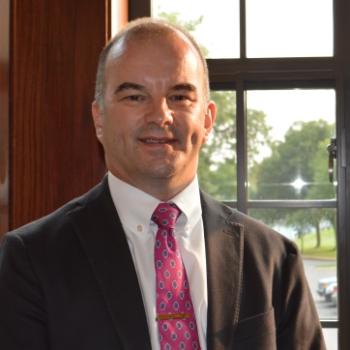Princeton Politics professor, Keith Whittington, has published an important piece in Real Clear Politics about the growing threats to academic freedom in  American colleges and universities. Entitled “Chipping Away at Academic Freedom,” Whittington draws our attention to an open letter, signed by a group of faculty at his own university, that is demanding “the creation of a faculty committee empowered to`oversee the investigation and discipline of racist behaviors, incidents, research, and publication on the part of the faculty.'” There is little doubt that the existence of such a committee on a college campus will have a deleterious effect upon the pursuit and acquisition of truth as well as the sorts of debates and conversations that make that pursuit and acquisition possible. Whittington writes:
American colleges and universities. Entitled “Chipping Away at Academic Freedom,” Whittington draws our attention to an open letter, signed by a group of faculty at his own university, that is demanding “the creation of a faculty committee empowered to`oversee the investigation and discipline of racist behaviors, incidents, research, and publication on the part of the faculty.'” There is little doubt that the existence of such a committee on a college campus will have a deleterious effect upon the pursuit and acquisition of truth as well as the sorts of debates and conversations that make that pursuit and acquisition possible. Whittington writes:
Make no mistake: this is a proposal to create a loophole in academic freedom through which one could drive a truck. As one of the authors of the letter subsequently explained, “anti-Black research” should be regarded as a form of research misconduct—like, say, falsifying data—and treated as “unethical,” since it could presumptively do harm to “communities of color.” This new directive does not target the kind of behavior already excluded from the protections of academic freedom—it does not limit itself to instances of a researcher falsifying results or a teacher harassing a student or yelling racial slurs at a colleague. It is not even limited to overheated political hyperbole that a professor might resort to on social media. It targets, rather, the substantive content of scholarly teaching and research, and—if a committee of faculty believe it to be antithetical to the political interests of favored racial groups—declares it to be evidence of misconduct and thus beyond the protections of academic freedom.
Given today’s expansive and nebulous scope of what might qualify as “racist,” it’s not hard to imagine such a broad exception to academic freedom being used to remove professors who find themselves on the wrong side of this committee of public safety. Any number of legitimate but controversial questions of scholarly interest could run afoul of such an exception to academic freedom, even if everyone involved was acting in good faith. On matters related to race, the proposal advises scholars not to follow evidence wherever it may lead but rather to question whether the evidence serves the desired political narrative. Substandard or unprofessional research and teaching are in most cases already subject to sanction by universities—but asking an interdisciplinary committee to evaluate whether research in specialized fields of study is professionally incompetent invites politicized investigations. [emphasis added]
Without a doubt, racism ought to be opposed at every turn. But that is only because racism is a false view about the nature of human beings. At religious institutions, such as the university at which I am honored to serve (Baylor), the rejection of racism is baked into the very Christian idea of the imago dei, that human beings are by nature made in the image of God. But that image is not merely symbolic, it is descriptive of the aspect of our nature that is the most “Godlike,” our intellects. As St. Thomas Aquinas put it: “Since man is said to be the image of God by reason of his intellectual nature, he is the most perfectly like God according to that in which he can best imitate God in his intellectual nature.” Consequently, it would be a mistake for Christian institutions to try to emulate the project envisioned in the Princeton faculty letter. For it would undercut the epistemic grounds for why we believe racism is wrong: it is wrong because it is false. But that judgment depends on what the truth is, something that we can only know because of the power of our intellects. Thus, a Christian university that takes its stand against racism by giving identity politics and group perceptions pride of place over the pursuit and acquisition of truth not only diminishes the imago dei and violates the very reason for its existence but cultivates in its students reflexes that do not fulfill the demands of Christian charity: “Love is patient; love is kind; love is not envious or boastful or arrogant or rude. It does not insist on its own way; it is not irritable or resentful; it does not rejoice in wrongdoing, but rejoices in the truth. It bears all things, believes all things, hopes all things, endures all things.” (I Corinthians 13: 4-7).
You can read the entirety of Professor Whittington’s piece here.












